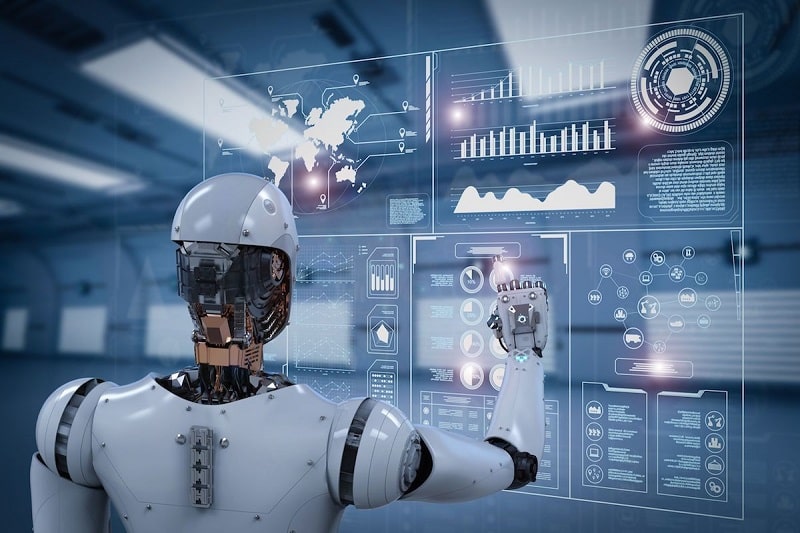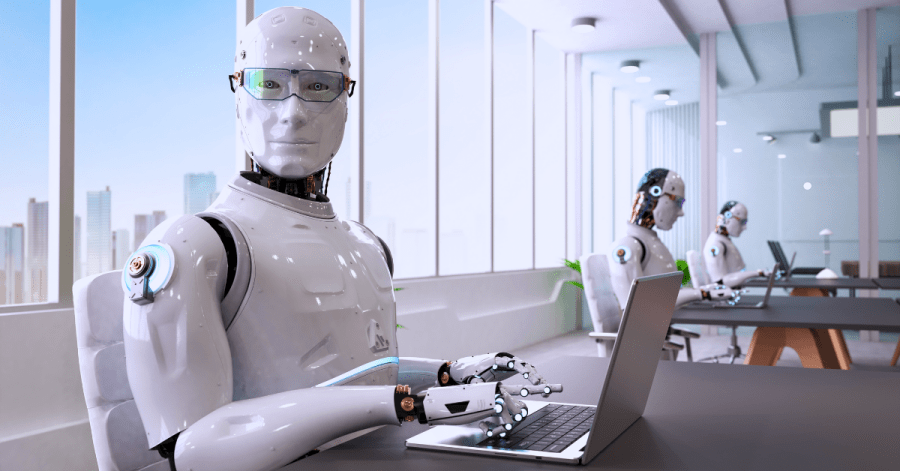The Impact of Artificial Intelligence on the Future of Work: Challenges, Opportunities, and Strategi
Introduction
Artificial intelligence (AI) is rapidly reshaping the landscape of work and employment, ushering in a new era of automation, innovation, and transformation. From intelligent robots and algorithms to machine learning and natural language processing, AI technologies are revolutionizing how we work, what jobs look like, and the skills required to succeed in the digital age. As AI continues to advance at an unprecedented pace, it is essential to understand its implications for the future of work and to explore strategies for navigating the opportunities and challenges it presents. The Rise of Artificial Intelligence in the Workplace
The Rise of Artificial Intelligence in the Workplace
The proliferation of AI technologies in the workplace is driven by several factors, including advances in computing power, the exponential growth of data, and breakthroughs in algorithms and machine learning techniques. AI-powered tools and systems are increasingly being deployed across a wide range of industries and sectors, automating routine tasks, augmenting human capabilities, and enabling new forms of innovation and creativity.
In the realm of manufacturing and production, AI-driven robots and automation systems are revolutionizing the way goods are produced, leading to greater efficiency, precision, and cost-effectiveness. In fields such as healthcare, finance, and customer service, AI-powered chatbots, virtual assistants, and diagnostic tools are enhancing productivity, improving decision-making, and transforming the delivery of services. Moreover, AI technologies are driving breakthroughs in fields such as drug discovery, genomics, and renewable energy, unlocking new frontiers of scientific discovery and technological innovation.
Challenges Posed by AI in the Workplace
While AI offers tremendous opportunities for improving productivity, efficiency, and innovation, it also presents significant challenges and disruptions to the world of work. One of the most pressing concerns is the potential impact of AI-driven automation on jobs and employment. As AI technologies become increasingly capable of performing a wide range of tasks previously carried out by humans, there is growing apprehension about the displacement of workers and the loss of jobs across various industries and sectors.
Indeed, numerous studies have predicted that AI-driven automation could lead to significant job losses in certain sectors, particularly those that involve routine, repetitive tasks that are easily automatable. For example, jobs in manufacturing, transportation, and retail are particularly vulnerable to automation, as AI-powered robots and machines can perform these tasks more efficiently and cost-effectively than humans. Moreover, AI technologies are also beginning to encroach upon white-collar professions such as law, accounting, and medicine, raising concerns about the future of professional jobs in the age of AI. Another challenge posed by AI in the workplace is the potential for exacerbating existing inequalities and disparities. While AI has the potential to enhance productivity and create new opportunities for innovation and growth, its benefits are not equally distributed across society. There is a risk that AI-driven automation could disproportionately affect low-skilled workers, exacerbating income inequality and widening the gap between the rich and the poor. Moreover, certain demographic groups, such as women, minorities, and older workers, may be disproportionately impacted by job displacement and economic dislocation resulting from AI-driven automation.
Another challenge posed by AI in the workplace is the potential for exacerbating existing inequalities and disparities. While AI has the potential to enhance productivity and create new opportunities for innovation and growth, its benefits are not equally distributed across society. There is a risk that AI-driven automation could disproportionately affect low-skilled workers, exacerbating income inequality and widening the gap between the rich and the poor. Moreover, certain demographic groups, such as women, minorities, and older workers, may be disproportionately impacted by job displacement and economic dislocation resulting from AI-driven automation.
Furthermore, the rise of AI in the workplace raises profound ethical, social, and legal questions that must be addressed. Concerns about data privacy, algorithmic bias, and the ethical implications of AI-driven decision-making are becoming increasingly salient as AI technologies become more pervasive and influential in our daily lives. Moreover, there is a need to develop robust regulatory frameworks and governance mechanisms to ensure that AI is deployed in a responsible and ethical manner, with due regard for human rights, social justice, and the public interest. Opportunities and Strategies for Success
Opportunities and Strategies for Success
Despite the challenges posed by AI in the workplace, there are also significant opportunities for individuals, organizations, and societies to harness the transformative power of AI for positive outcomes. By embracing AI technologies and adapting to the changing nature of work, individuals can position themselves for success in the digital economy. Developing skills in areas such as data science, machine learning, and artificial intelligence will be increasingly valuable in the job market of the future, as demand for these skills continues to grow.
Moreover, AI technologies have the potential to create new opportunities for entrepreneurship, innovation, and economic growth. Startups and small businesses can leverage AI-powered tools and platforms to develop new products, services, and business models, enabling them to compete more effectively in the global marketplace. Similarly, established companies and organizations can harness AI to optimize operations, improve customer experiences, and drive innovation across their value chains.
Furthermore, AI technologies have the potential to enhance human creativity, collaboration, and problem-solving capabilities in the workplace. By augmenting human intelligence with machine intelligence, AI can enable individuals to focus on tasks that require human judgment, creativity, and emotional intelligence, while offloading routine, repetitive tasks to machines. This can lead to greater job satisfaction, engagement, and fulfillment for workers, as well as improved outcomes for organizations and societies. In order to realize the full potential of AI in the workplace, it is essential to adopt a holistic and inclusive approach that addresses the needs and concerns of all stakeholders. This includes investing in education and training programs to equip individuals with the skills and capabilities needed to thrive in the digital economy. It also involves fostering a culture of lifelong learning and continuous adaptation, where individuals are encouraged to embrace change, take risks, and pursue new opportunities for growth and development.
In order to realize the full potential of AI in the workplace, it is essential to adopt a holistic and inclusive approach that addresses the needs and concerns of all stakeholders. This includes investing in education and training programs to equip individuals with the skills and capabilities needed to thrive in the digital economy. It also involves fostering a culture of lifelong learning and continuous adaptation, where individuals are encouraged to embrace change, take risks, and pursue new opportunities for growth and development.
Moreover, organizations must prioritize diversity, equity, and inclusion in their AI strategies and initiatives, ensuring that AI technologies are developed, deployed, and governed in a manner that is fair, transparent, and accountable. This includes mitigating bias in AI algorithms, promoting diversity in AI research and development teams, and engaging with stakeholders to ensure that AI technologies serve the needs and interests of all members of society.
Additionally, policymakers and regulators have a crucial role to play in shaping the future of work in the age of AI. By developing forward-thinking policies and regulatory frameworks that promote innovation, protect workers' rights, and ensure social and economic inclusion, governments can help steer the transition to a more equitable and sustainable future of work. This includes investing in digital infrastructure, supporting research and development in AI, and providing social safety nets and retraining programs for workers affected by AI-driven automation. Conclusion
Conclusion
In conclusion, the rise of artificial intelligence is reshaping the landscape of work and employment in profound and far-reaching ways. While AI presents significant challenges and disruptions to the world of work, it also offers tremendous opportunities for improving productivity, driving innovation, and enhancing human well-being. By embracing AI technologies and adopting a proactive and inclusive approach to workforce development, individuals, organizations, and societies can navigate the opportunities and challenges of the AI-powered future of work and create a more equitable, sustainable, and prosperous world for all.


























































